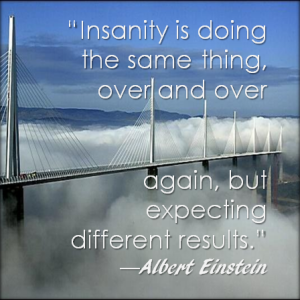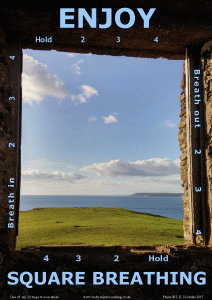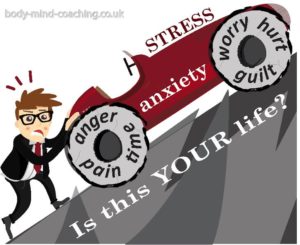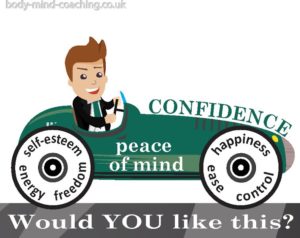Last month’s mental health awareness week, mentioned stress as being a key factor. You can take their stress test below my take on it. And for people who really want to get a better work life balance, a good sleep and deal with their feeling of overwhelm, I run 20 steps to beat stress workshops.
Is stress what you think?
Most people think stress is normal. Yes, it has become part of life and seems the norm. But does this make it normal? And, even if stress is the norm – is that a reason to make it normal?
It is true, stress is a normal hormonal reaction in the body, when faced with something frightening. This reaction is designed to be short lived so we can respond to the threat effectively
Yet, the word stress is now more often used to describe a chronic situation where we feel we are under pressure and struggling to manage.
What you think stress it is?
When asked ‘what do you think stress is?’ most people are likely to say it is the feeling of being overwhelmed caused by:
- Work
- Time
- Relationships
- Children
- Parents
- Money
The solutions often offered to solve these focus around
- More time: plenty of time management courses available
- Making more money
- How to get more energy often through more exercise?
- More rational: but you can’t rationalise a feeling?
- More information: we are surrounded by more information than ever before and seem more stressed not less?
The problem with all of the above is that they are about force and effort. And that creates more stress. If you had more time you’d only find more things to fill it. If you had more information you’d feel stressed about having time to process it. And so it goes on because the solutions offered tackle the symptoms, not the cause.
The Einstein thing
Einstein allegedly said – and for the purposes of this blog we’ll assume it was him:

Whether it’s in our businesses or our relationships – we are all, or most of us, guilty of practising this exercise in futility. We get on that old hamster wheel and get stressed and frustrated that nothing has changed.
This is what I saw in my clients and is the type of question I asked myself after some years working as a therapist.
The RSI journey
In 1993 when I started my practice, RSI stood for Repetitive Strain Injury. RSI, as described on the NHS website, ‘is a general term used to describe the pain felt in muscles, nerves and tendons caused by repetitive movement and overuse. It’s also known as work-related upper limb disorder, or non-specific upper limb pain.
By 2016, I found that the symptoms clients were experiencing were much the same but now I had decided to call it Repetitive Stress Injury.
A link exists between most RSIs and the stress of repetitive motions at the computer or overuse injuries in sports. … An RSI occurs when a joint experience stress that pulls on the tendons and muscles surrounding it.
If the stress is repeated the body does not have time to recover and becomes irritated. And the same is true of the brain.
The result?
- Headaches
- Back pain
- Depression
- Anxiety and panic attacks
- Breathing difficulties – asthma
Time to think differently?
I observed my clients. I listened to my clients and discovered that:
- It could be too much work or not enough
- Time pressure or bored of not having a job
- Relationships: Their relationship or not being in a relationship
- The children or not being able to conceive
- The parents: having to look after them or not having them to be able to help
- Money: not having enough but it could be having to decide how to invest it wisely
SO, despite knowing all that, why is stress so prevalent? For me it means that what we think is the cause of stress can’t be the problem – otherwise solutions advocated for years would have worked by now. And we would be seeing less stress in the world, not more.
So, to return to Einstein’s alleged quote. IF your stress is what you think it is and IF what you’ve done so far hasn’t worked. And IF what you’ve done so far has given you exactly the same results then:
- Is it what you think?
- How do you deal with it?
- What are you going to do now?
Can we live with ease – not dis-ease?
Einstein again:
‘ Peace cannot be kept by force;
It can only be achieved by understanding.’
I think of peace as the opposite to stress.
So if stress not what you think, then how you get rid of it also has to change. To do that you need to understand your stress.
Understanding You and STRESS
Here’s a few pointers for you to consider when getting to grips with stress as it is for you.
- What is your stress level? Scale it from 0 to 10
- How committed are you to dealing with your stress level? Scale it from 0 to 10. If you are not at an 8 or above then this is not surprising nothing has changed.
- If I had a magic wand and could change one thing about you what would it be?
- Would that affect your stress levels? If not then again you are looking in the wrong place to resolve your problems.
- Who are the FIVE most important people in your life?
Are you on that list? If not – why not? Looking after yourself is not selfish. If you are on a plane that’s about to make a forced landing you put your own oxygen mask on first. If you can’t breathe then you can’t help anyone else.
There’s an important difference between self-interest and selfishness as this blog from Pink&Green explains.
If something is stopping you from acting in your own self-interest what is it?
What is stress?
What is this thing we call stress? Think about going on a roller-coaster. It can be a fun and exhilarating thing for some or it can be frightening or stressful to others. The things that happen in our life are just the same.
Stress is NOT what’s happening to us. Stress IS:
- Our response to what is happening!
- It is a feeling of lack of control and a belief that if we aren’t in control we’re not secure. That insecurity is the point at which we tend to freeze.
- The point when our head and heart/our body and mind, no longer speak the same language. That is the true thing we find frightening, not the event.
How did we get there and how did it happen?
For me the answer lies in the following:
- No big picture or lost sight of it. This means we are living day by day responding the whatever gets thrown at us not what we truly desire
- Values and principles. We are unaware of what they are or are not living by them so find ourselves in conflict with ourselves
- Disconnected from feelings. Often raised to hide them we learn to see feelings as a bad thing.
- Living with tolerances. Putting up with little things that we either don’t discuss or don’t attend to because they seem small yet every time we see them it irritates us
- Become a human doing rather than a human being. We’re always on the go because if we stop we might start feeling guilty. Or we might simply start feeling and then lots of pain and sadness could surface. Things we would rather not look at.
What can help?
Things to consider:
- If it is not outside, then is it inside?
- If more isn’t working how might less be?
- Who likes a gift?
- How does it feel to say no to something so you can say yes to you?
- Who can think more than one thought at a time?
- Do you have time to breathe?
Einstein once more: Life is like a bicycle to keep your balance you must keep moving.
To help your situation you need to move and I use this acronym:
- Happiness is:
- Embracing your fears
- Leverage your strengths
- Positive actions you can take
So, if you can only think one thought at a time and you have time to breathe, to get out of from the frozen state (not moving state of stress) you can simply start to focus on the movement of your breath.
 Square Breathing
Square Breathing
Count in for four – then hold for four counts, then breathe out for four counts and hold your breath for four counts before starting again. This is square breathing. I tend to close my eyes and count: in, 2, 3, 4 hold, 2, 3, 4 out, 2, 3, 4, hold, 2, 3, 4 etc.
The pauses are the time when your thoughts will begin to still. They are the most important part of the breath and are key in life, if we only allow ourselves the time to pause in our activities.
Having done this a few times notice how you feel. Now go back to the understanding stress question: What is your stress level? Scale it from 0 to 10 and notice if the number is any lower.
How do you want to feel
It’s important you consider how you want to feel and describe it in a way other than I don’t want stress or I don’t want pain, tension etc. The language you use to describe it needs to reflect the positive change that has happened once the things you don’t want have disappeared. Language makes a big difference (but that is for another blog).
Do you not want to feel like this?

Or do you want to feel like this?

Thus, to feel less stressed it’s important that you:
- Give yourself the gift of prioritising yourself and having joy in your life.
- Say yes to less – by which I mean it’s OK to say ‘No’ and you don’t have to feel guilty.
- Focus on the one thought and that is; to square breath
Remember: Stress is not what you think, it is WHAT you think!
If you would you like more help, get in touch for a one-to-one free taster session or check out my workshop – 20 Steps to Beat Stress.
Here is an animation with more details about stress and you can take their stress test.
